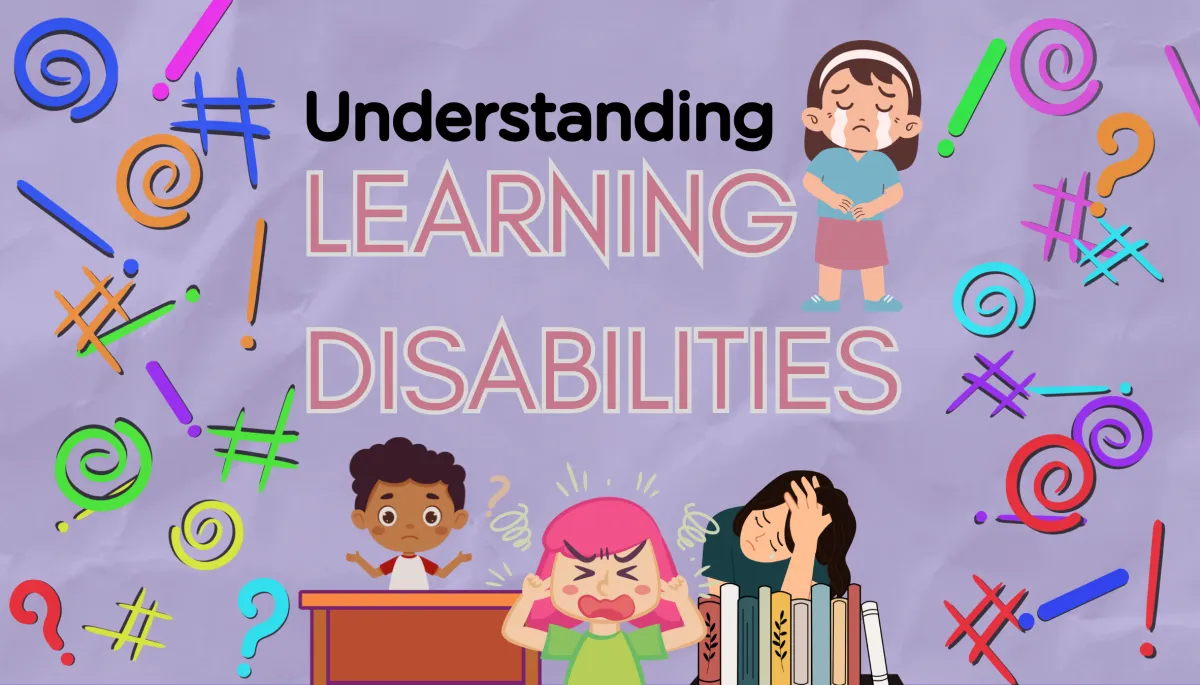General Inquiries: (587) 333-6349 - info@sanostate.com



Learning Disabilities: Not Just a Behavioral Diagnosis
“-not all challenges are necessarily behavioral or result from a student’s own choice not to want to learn...” - Ricki Gillespie
Learning Disabilities: Not Just a Behavioral Diagnosis
As a parent, it’s always disheartening to learn that your child is not doing well in school. As you try to understand why your child is struggling, it’s important to remember that there are various reasons why a student may experience difficulties in learning. When deciphering a child’s learning issues, remember that not all challenges are necessarily behavioral or result from a student’s own choice not to want to learn; in some cases, they may have a learning disability. This blog post aims to help parents understand how learning disabilities can present in students and provide guidance on how to identify and accommodate these disabilities.
Learning disabilities are a wide spectrum of impairments that can make it difficult or even impossible for a student to learn like their peers. These disabilities do not happen because of a lack of effort or commitment, and they cannot be easily overcome by just “trying harder.” Biological or environmental factors cause them and can be identified through careful evaluation. Often, learning disabilities are undiagnosed or wrongly labelled as behavioral issues because they are less visible than physical disabilities.
One common example of a learning disability is dyslexia, a neurological condition that affects a person’s ability to read and spell words fluently. Students with dyslexia may find it challenging to decode words, comprehend what they read, and write sentences. They might also struggle with some language-based activities like pronunciation and vocabulary acquisition. Dyslexics often have average or above-average intelligence but may still struggle in school because of their hidden disability.
Another learning disability is dyscalculia, which affects a person’s ability to perceive and calculate numbers accurately. Students with dyscalculia may find it challenging to learn counting, mathematical operations, time measurement and perceive numerical concepts like fractions and decimals. They also may struggle to judge spatial awareness. As a result, they may avoid math-related assignments even though the subject is essential to their academic growth. It can become increasingly frustrating for them if they are told repeatedly to put more effort into math since more effort is not going to make it any easier for them.
Attention Deficit Hyperactivity Disorder (ADHD) is another condition that is often misdiagnosed as behavioral issues. ADHD is a neurological disorder that affects a person’s executive function, which includes planning, impulse control, and regulating attention. This condition can manifest in different ways, such as hyperactivity, inattention, or impulsivity, which can make it challenging for the students to focus and follow academic instructions.
As a parent, recognizing the signs of a learning disability in your child can be challenging. Still, it’s important to understand that these disabilities are not caused by a lack of effort on your child’s part or by the teachers’ approach. If you feel that your child is demonstrating behaviors or showing difficulties that may be related to a learning disability, consider reaching out to their teachers, guidance counselors, or seeking an evaluation from a specialist. A proper diagnosis will allow the teachers, parents, and the child to work towards a potential solution and a supportive environment. It’s vital to remember that the help provided to students with learning disabilities can significantly affect their academic and personal success, and every child deserves an equal opportunity to learn.
General Inquiries:
Our Locations:
Additional Resources:
About Us:
We strive for excellence in psychological treatment. We are committed to providing professional, caring, innovative, and research-based services.
© 2024 Sano State Taylored Psychology. All Rights Reserved.

